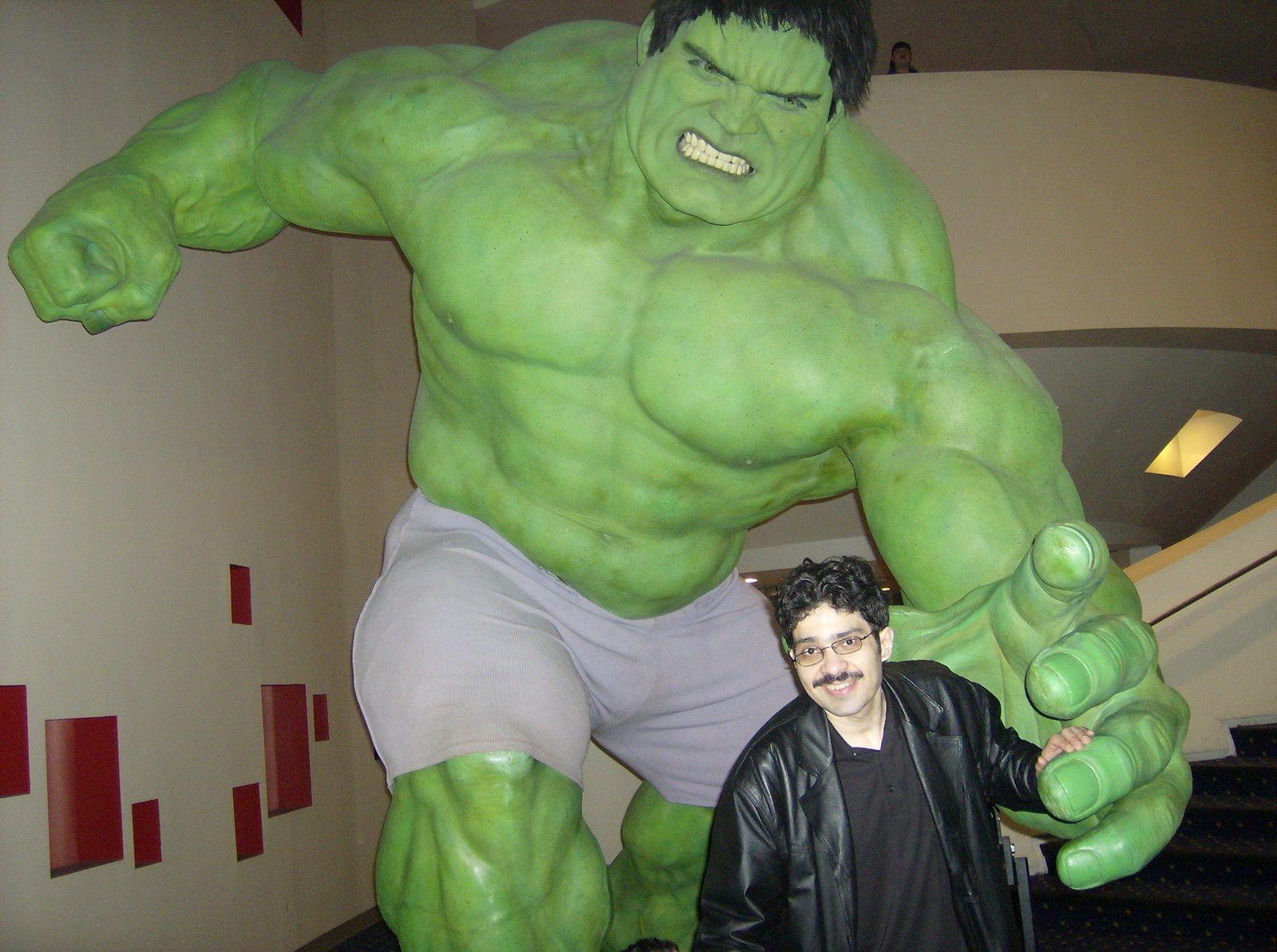spanish translation first followed by original article in english:
The Golden Compass -- una reunión informativa para los cristianos en cuestión Publicado: Tuesday, December 04, 2007 a 5:26 am hora La liberación de The Golden Compass como una de las principales película representa un nuevo desafío para los cristianos -- especialmente de los padres. La puesta en libertad de una popular película con actores principales que presenta un mensaje directamente subversivo del cristianismo es algo nuevo. No es probable que sea la última. Después de ver la película en un anticipo de visualización y de haber leído los tres libros de Su Dark Materials, puedo asegurar a los cristianos que nos enfrentamos a un verdadero reto -- una que requerirá una cuidadosa reflexión y el compromiso intelectual. ¿Por qué esta película es un reto así? En primer lugar, The Golden Compass es una película muy atractiva. Al igual que el libro en que se basa, la película es una historia muy sofisticada que está muy bien contada. El casting fue excelente. Nicole Kidman y Daniel Craig (el último actor de James Bond) se sumarán otros incluidos Sam Elliott y el debutante Dakota Blue Richards, que juega el papel central, de 11 años, Lyra Belacqua. Kidman es escalofriante como la bella pero mal Marisa Coulter y Craig es perfecto como Lord Asriel. El actor Ian McKellen (Gandalf en el Señor de los Anillos trilogía) es la voz de Iorek Byrnison, los vehículos blindados de soportar. La película está muy bien hecho y será muy atractivo para un público de todas las edades. Los efectos especiales son superiores a cualquier anterior película del tipo, incluido el Señor de los Anillos trilogía (también publicado por New Line Cinema). Todo está en su lugar para que esto sea un éxito en la taquilla. En segundo lugar, la película se basa en una historia que es cautivadora, sofisticados, y realmente interesante. Philip Pullman es un experto escritor de cuentos y escrutador. Su inventado mundos de The Golden Compass y de toda la trilogía His Dark Materials son tan buenos como el género de la fantasía pueden ofrecer. Sus personajes son creíbles y el diálogo es constante -- en gran parte debido a Pullman de la brillante invención de un acompañante por cada carácter -- un "demonio". La conclusión es que estos libros y esta película atraiga mucho la atención y cautivar a muchos lectores y televidentes. Entonces, ¿cuál es el problema? No se trata sólo de la trilogía de fantasía o de cualquier proyecto cinematográfico. Philip Pullman tiene un programa -- un programa acerca de como sutiles como un ejército de tanques. Su programa es nada menos que para exponer lo que él considera es la tiranía de la fe cristiana y la iglesia cristiana. Su odio de la historia bíblica es clara. Él es un ateo más importante de las obras literarias cuyo proyecto está destinado a ofrecer una descripción en la que se morales invertir el relato bíblico de la caída y proporcionar una liberación de la mitología laica para una nueva edad. El gran enemigo de la humanidad en los tres libros, The Golden Compass, The Subtle Knife y The Amber Spyglass (en conjunto, conocido como Su Dark Materials) es la iglesia cristiana, identificado como el mal Magisterio. El Magisterio, en representación de la autoridad de la iglesia, tiene miedo de la libertad humana y trata de reprimir la sexualidad humana. El Magisterio se utiliza la narrativa bíblica de la caída y de la doctrina del pecado original para reprimir la humanidad. Es a la vez violento y vil, y no se detendrán ante nada para proteger sus propios intereses y de preservar su poder. Pullman del ataque contra el cristianismo bíblico es directo e innegable. Una vez, él preguntó por qué sus libros atrajo poca controversia incluso como los libros de Harry Potter atraído tanto. Él le dijo a un periódico australiano que lo que está "diciendo cosas que son mucho más subversivas que nada pobre Harry ha dicho. Mis libros son sobre la muerte de Dios". ¿Los espectadores de la película ver todo esto? El ataque directo contra el cristianismo y el Dios es suavizado en la película. Pero cualquier persona informada reconocerá el Magisterio como representantes de la Iglesia y el cristianismo. Por supuesto, en nuestro mundo el Magisterio es la autoridad de liderazgo de la Iglesia Católica Romana. Pullman en el mundo que representa el cristianismo en su conjunto. De hecho, la historia le dice Pullman de John Calvin asumir el papado y traslado de la sede a Ginebra, combinando así las tradiciones católica y Reforma en uno. En la película, el magisterio parece estar situado en Londres. En cualquier caso, el punto no es sutil. La mayoría de los ataques directos a Dios y el cristianismo no aparecen hasta que el último libro, The Amber Spyglass, en la que Lyra y Will (un chico de su edad que primero aparece en el segundo libro) eventualmente matar a Dios, que resulta ser un decrépito y Débil viejo impostor, que no merecía la pena era la muerte. Pullman es el ataque contra el cristianismo exageradas por sus críticos? N -- su ataque no es ni sutil ni ocultas. La premisa de la trilogía es que el niño es Lyra predicha por la profecía que invertir la maldición de la caída libre de la humanidad y de la mentira del pecado original. Considerando que en la teología cristiana es Jesucristo, que invierte la maldición a través de su labor de expiación en la cruz, Pullman presenta su propia teología de la clase en la que el otoño se invierte a través de la violación de esos niños. Como se insiste en Pullman, Eva y Adán se derecho de comer el fruto prohibido y Dios era un tirano a prohibir el ejercicio de la fruta del Árbol del Conocimiento del Bien y del Mal. El elemento sobrenatural de la historia de Pullman es "Dust", que es visto por el Magisterio como el pecado original, sino por Pullman se presenta como la esencia de la vida misma. En The Golden Compass, Lyra se da una "alethiometer" o "brújula de oro", que se llena de polvo y le dice la verdad a un cualificado para su utilización. Los lectores se les dice que una gran batalla que se avecina en el que las fuerzas que luchan por la libertad humana y la felicidad se enfrentará (y destruir) el Magisterio y Dios. En el último volumen de la trilogía, un personaje conocido como Dr Mary Malone explica su descubrimiento de Lyra y Will: "Yo era una monja, que ve. Pensé que la física se podría hacer para la gloria de Dios, hasta que vi A la no existencia de Dios a todos y que la física es más interesante de todas maneras. La religión cristiana es un muy poderoso y convincente error, eso es todo. " ¿Hay más a la más grande historia? Sí, y tiene que ver con el sexo. Sorprendentemente gráfica y sexo explícito. Pullman cree que la iglesia cristiana es horriblemente represivas sobre el sexo y que esto tiene su origen en la idea de la de otoño. Como le dijo a Hanna Rosin de la Atlantic Monthly, "¿Por qué la Iglesia Cristiana ha pasado 2000 años la condena de este glorioso momento, así, eso es un misterio. Quiero confrontar que, supongo, diciéndole a una historia que el llamado pecado original Es cualquier cosa pero. Es lo que nos hace plenamente humanos ". Pubertad es una gran parte de la preocupación de Pullman. Viniendo de edad historias son una de las formas más comunes de la ficción, pero Pullman de paquetes de un golpe que los lectores no pueden olvidarse. Él quiere celebrar la llegada a los adolescentes del conocimiento sexual. Recuerde que el demonio del niño puede cambiar las formas hasta la pubertad. En ese momento se fija en una sola criatura, que refleja la personalidad y el carácter de los jóvenes adultos. Pubertad significa la venida de los sentimientos sexuales. El Magisterio se prefiere que los niños crezcan sin experimentar sexuales tentación, por lo que está llevando a cabo un experimento con el fin de separar los niños de sus demonios antes de la pubertad, cuando su demonio ya no puede cambiar. Este procedimiento, conocido como "intercision" crea en el niño un "niño separado", que no tiene ningún demonio -- y por lo tanto no alma. El Magisterio Sra Coulter ha asignado la tarea de secuestrar a los niños y llevarlos al Norte para este experimento. Como se explica a la Sra Coulter Lyra (que se revela a ser su propia hija) en el primer libro: "Todo lo que sucede es un poco cortado, y entonces todo el pacífico. Forever! Verá, su demonio es un maravilloso amigo y compañero cuando usted Son jóvenes, pero a la edad que llamamos la pubertad, la edad a la que está llegando muy pronto, darling, demonios traer todo tipo de molestias, pensamientos y sentimientos, y eso es lo que permite Dust in Una rápida operación poco antes de eso, y usted ' Volver nunca perturbada de nuevo. " En The Golden Compass, Lyra y sus compañeros libres de los niños celebrado en esta estación experimental en el norte y destruirlo. In The Amber Spyglass, Lyra y Will invertir la historia de la Edenic Fall por consumar un acto sexual en el jardín. Una vez más, Pullman no es sutil. Tenga en cuenta que se trata de una serie de libros comercializados a los niños, niñas y adolescentes. Lyra pone una fruta roja a los labios y Will's Will "a la vez sabía lo que ella significaba, y que él era demasiado alegre de hablar." En momentos, los 13 años de edad participan en algún tipo de acto sexual no especificado. "La palabra amor establecer sus nervios en llamas", escribe Pullman de Will. "Todo su cuerpo encantado con él, y él contestó ella en las mismas palabras, besando su cara caliente una y otra vez, con la adoración potable en el aroma de su cuerpo y su cálido, miel, y su cabello fragancia dulce, húmedo, que la boca Probado de la pequeña fruta roja. " Apenas unas pocas páginas más adelante, Will y Lyra se atreven a tocar los otros demonio. Ese paso es aún más acusada y sexualmente explícita que la primera. Los adolescentes ahora saben "que ni el demonio iba a cambiar ahora, después de haber sentido un amante de las manos de ellos. Estas fueron sus formas de vida: les gustaría que ningún otro." ¿De qué se trata Pullman y CS Lewis? Dicho simplemente, Pullman odia el trabajo de CS Lewis Las crónicas de Narnia. Él le dijo a Hannah Lewis Rosin que la famosa obra es "moralmente repugnante" y "una de las más feas y venenosas cosas que nunca lee". Narnia, dijo, "es la cristiana.... Y el mío es el no cristiano". Cuando la primera película de Narnia fue puesto en libertad en 2005, Pullman describió el libro como "una peevish mezcla de racistas, misogynistic y reaccionaria perjuicio". De hecho, el Pullman His Dark Materials pretende ser una respuesta a la Lewis crónicas de Narnia. ¿Qué Lewis (y JRR Tolkien) hizo por el cristianismo, Pullman quiere hacer por el ateísmo. Entonces, ¿qué deben hacer los cristianos? Un buen primer paso sería tomar una respiración profunda. La fe cristiana no está a punto de ser derrocado por una película, ni por una serie de libros de fantasía. Pullman, tiene una agenda que está claro, y los cristianos necesidad de informarse de lo que es este programa y lo que significa. Al mismo tiempo, nada serviría su programa mejor que tienen a los cristianos hablando con imprudencia temeraria o unintelligently acerca de la película o de los libros. Se trata de la batalla de ideas y visiones del mundo. Si bien los cristianos no celebramos la liberación de esta película, hay que reconocer que la mezcla de desafío y la oportunidad que viene con millones de personas viendo la película y hablando de las cuestiones que plantea. Cuando la película se menciona en el lugar de trabajo, en la escuela, en el patio de recreo, o en el campus de la universidad, esta es una gran oportunidad para demostrar que los cristianos no tienen miedo de la batalla de ideas. Tenemos que reconocer que la Iglesia Cristiana tiene algunos momentos muy embarazoso de su historia, momentos en los que ésta no pueda representar a la verdad del Evangelio y del amor de Cristo. Autores como Philip Pullman aprovechar estas deficiencias con el fin de la pintura a toda la Iglesia Cristiana como una conspiración contra la libertad y la felicidad humana. Por supuesto, que el cargo no permanecerá atento examen, y podemos afrontarlo frontalmente con un reflexivo respuesta. Algunos cristianos han celebrado también muy poco útil opiniones de la sexualidad humana. Estos, debemos admitir, que incluyen las cifras tan grandes e influyentes como Agustín y, desgraciadamente, CS Lewis. Pero estas cifras, con razón, influyente en otras esferas de la fe, no son representativos, en este caso, de la sexualidad bíblica. Podemos poner las cosas. En caso de que se trate de que las personas, jóvenes y viejos, se confunden con esta película? Por supuesto. Pero no creo que un boicot disuadir a la población en general de ver la película. Me preocupa mucho cuando pienso en tanta gente que se entretuvieron por un subversivo mensaje emitido por ese medio seductora. Somos responsables ante ellos muestran, en la medida de nuestras posibilidades, que el Magisterio de The Golden Compass es justo o no una representación exacta de la Iglesia Cristiana. Sólo puedo pregunto cuántos padres y abuelos permitirá a los niños y jóvenes a ver la película y luego ellos comprar los libros -- blissfully desconocen lo que viene en los libros dos y tres. El Evangelio de Jesucristo ha enemigos, lo que conocemos. Cristianos los padres deben ser informados de su Dark Materials e informar a los demás. Tenemos que tomar la responsabilidad de utilizar el interés en esta película para enseñar a nuestros hijos a pensar bíblicamente y que se discierne en su compromiso con los medios de comunicación en todas sus formas. Debemos armar a nuestros niños a ser capaces de hablar de este proyecto con sus compañeros de clase sin miedo ni rencor. Philip Pullman, tiene una agenda, pero nosotros también. Nuestro programa es el Evangelio de Cristo -- un mensaje mucho más poderoso que el de The Golden Compass. Pullman del mundo humano sin restricciones de la autonomía sería de pesadilla de lograrse. Su historia promesas de liberación, sino que esclavizan a los seres humanos a sí mismos y destruir todas trascendente valor. La historia bíblica de la Caída es cierto, después de todo, nuestro único y de rescate es a través del Evangelio de Jesucristo. La maldición del pecado no fue invertido por los adolescentes jugando en el sexo en un jardín, sino por el Hijo de Dios derramando Su sangre sobre una cruz. Entonces, vamos a conseguir nuestros cojinetes recto como pensamos y hablar de The Golden Compass. Esta película representa un gran reto, pero un reto, que los cristianos debemos estar siempre dispuestos a cumplir. __________________ Hemos discutido The Golden Compass, el lunes de la edición de The Albert Mohler Program [escuchar aquí]. Vamos a continuar con el debate en el día de hoy. Escuche y llamar
The Golden Compass -- A Briefing for Concerned ChristiansPosted: Tuesday, December 04, 2007 at 5:26 am ET
The release of The Golden Compass as a major motion picture represents a new challenge for Christians -- especially parents. The release of a popular film with major actors that presents a message directly subversive of Christianity is something new. It is not likely to be the last.
Having seen the movie at an advance viewing and having read all three books of His Dark Materials, I can assure Christians that we face a real challenge -- one that will require careful thinking and intellectual engagement.
Why is this movie such a challenge?
First of all, The Golden Compass is an extremely attractive movie. Like the book on which it is based, the movie is a very sophisticated story that is very well told. The casting was excellent. Nicole Kidman and Daniel Craig (the latest James Bond actor) are joined by others including Sam Elliott and newcomer Dakota Blue Richards, who plays the central role of 11-year-old Lyra Belacqua. Kidman is chilling as the beautiful but evil Marisa Coulter and Craig is perfect as Lord Asriel. Actor Ian McKellen (Gandalf in the Lord of the Rings trilogy) is the voice of Iorek Byrnison, the armoured bear.
The movie is very well done and will be very attractive to audiences of all ages. The special effects are superior to any previous movie of the type, including the Lord of the Rings trilogy (also released by New Line Cinema). Everything is in place for this to be a blockbuster at the box office.
Second, the movie is based in a story that is captivating, sophisticated, and truly interesting. Philip Pullman is a skilled writer and teller of tales. His invented worlds of The Golden Compass and the entire His Dark Materials trilogy are about as good as the fantasy genre can offer. His characters are believable and the dialogue is constant -- largely due to Pullman's brilliant invention of a companion for each character -- a "daemon."
The bottom line is that these books and this movie will attract a lot of attention and will captivate many readers and viewers.
So, what's the problem?
This is not just any fantasy trilogy or film project. Philip Pullman has an agenda -- an agenda about as subtle as an army tank. His agenda is nothing less than to expose what he believes is the tyranny of the Christian faith and the Christian church. His hatred of the biblical storyline is clear. He is an atheist whose most important literary project is intended to offer a moral narrative that will reverse the biblical account of the fall and provide a liberating mythology for a new secular age.
The great enemy of humanity in the three books, The Golden Compass, The Subtle Knife, and The Amber Spyglass (together known as His Dark Materials) is the Christian church, identified as the evil Magisterium. The Magisterium, representing church authority, is afraid of human freedom and seeks to repress human sexuality.
The Magisterium uses the biblical narrative of the Fall and the doctrine of original sin to repress humanity. It is both violent and vile and it will stop at nothing to protect its own interests and to preserve its power.
Pullman's attack on biblical Christianity is direct and undeniable. He once questioned why his books attracted little controversy even as the Harry Potter books attracted so much. He told an Australian newspaper that what he is "saying things that are far more subversive than anything poor old Harry has said. My books are about killing God."
Will viewers of the movie see all this?
The direct attack on Christianity and God is toned down in the movie. But any informed person will recognize the Magisterium as representing the Church and Christianity. Of course, in our world the Magisterium is the authoritative leadership of the Roman Catholic Church. In Pullman's world it represents Christianity as a whole.
Indeed, Pullman's tale tells of John Calvin assuming the papacy and moving the headquarters to Geneva, thus combining the Catholic and Reformation traditions into one. In the movie, the Magisterium appears to be located in London. In any event, the point is not subtle.
The most direct attacks upon Christianity and God do not appear until the last book, The Amber Spyglass, in which Lyra and Will (a boy her age who first appears in the second book) eventually kill God, who turns out to be a decrepit and feeble old imposter who was hardly worth the killing.
Is Pullman's attack on Christianity exaggerated by his critics?
No -- his attack is neither hidden nor subtle. The entire premise of the trilogy is that Lyra is the child foretold by prophecy who will reverse the curse of the Fall and free humanity from the lie of original sin. Whereas in Christian theology it is Jesus Christ who reverses the curse through His work of atonement on the Cross, Pullman presents his own theology of sorts in which the Fall is reversed through the defiance of these children. As Pullman insists, Eve and Adam were right to eat the forbidden fruit and God was a tyrant to forbid them the fruit of the Tree of the Knowledge of Good and Evil.
The supernatural element of Pullman's story is "Dust," which is seen by the Magisterium as original sin but is presented by Pullman as the essence of life itself. In The Golden Compass, Lyra is given an "alethiometer" or "golden compass" which is filled with Dust and tells the truth to one qualified to operate it. Readers are told that a great battle is coming in which forces fighting for human freedom and happiness will confront (and destroy) the Magisterium and God.
In the last volume of the trilogy, a character known as Dr. Mary Malone explains her discovery to Lyra and Will: "I used to be a nun, you see. I thought physics could be done to the glory of God, till I saw there wasn't any God at all and that physics was more interesting anyway. The Christian religion is a very powerful and convincing mistake, that's all."
Is there more to the larger story?
Yes, and it has to do with sex. Surprisingly graphic and explicit sex. Pullman believes that the Christian church is horribly repressive about sex and that this is rooted in the idea of the Fall. As he told Hanna Rosin of the Atlantic Monthly, "Why the Christian Church has spent 2,000 years condemning this glorious moment, well, that's a mystery. I want to confront that, I suppose, by telling a story that the so-called original sin is anything but. It's the thing that makes us fully human."
Puberty is a big part of Pullman's concern. Coming-of-age stories are one of the most common forms of fiction, but Pullman's packs a punch that readers cannot miss. He wants to celebrate the adolescent's arrival at sexual awareness. Remember that the child's daemon can change forms until puberty. At that point it is fixed as a single creature that reflects the personality and character of the young adult.
Puberty means the coming of sexual feelings. The Magisterium would prefer that children grow up without experiencing sexual temptation, so it is conducting an experiment in order to separate children from their daemons before puberty, when their daemon can no longer change. This procedure, known as "intercision" makes the child a "severed child" who has no daemon -- and thus no soul. The Magisterium has assigned Mrs. Coulter the job of abducting the children and taking them to the North for this experiment.
As Mrs. Coulter explains to Lyra (who is revealed to be her own daughter) in the first book: "All that happens is a little cut, and then everything's peaceful. Forever! You see, your daemon's a wonderful friend and companion when you are young, but at the age we call puberty, the age you're coming to very soon, darling, daemons bring all sorts of troublesome thoughts and feelings, and that's what lets Dust in. A quick little operation before that, and you're never troubled again."
In The Golden Compass, Lyra and her companions free the children held at this experimental station in the North and destroy it. In The Amber Spyglass, Lyra and Will reverse the story of the Edenic Fall by consummating a sexual act in the garden.
Again, Pullman is not subtle. Keep in mind that this is a series of books marketed to children and adolescents. Lyra puts a red fruit to Will's lips and Will "knew at once what she meant, and that he was too joyful to speak." Within moments, the 13-year olds are involved in some kind of unspecified sexual act.
"The word love set his nerves ablaze," Pullman writes of Will. "All his body thrilled with it, and he answered her in the same words, kissing her hot face over and over again, drinking in with adoration the scent of her body and her warm, honey-fragrant hair and her sweet, moist mouth that tasted of the little red fruit."
Just a few pages later, Will and Lyra will dare to touch each other's daemon. That passage is even more sexually charged and explicit than the first. The adolescents now know "that neither daemon would change now, having felt a lover's hands on them. These were their shapes for life: they would want no other."
What is it about Pullman and C. S. Lewis?
Put simply, Pullman hates C. S. Lewis's work The Chronicles of Narnia. He told Hannah Rosin that Lewis's famous work is "morally loathsome" and "one of the most ugly and poisonous things I ever read." Narnia, he said, "is the Christian one . . . . And mine is the non-Christian."
When the first Narnia film was released in 2005, Pullman described the books as "a peevish blend of racist, misogynistic and reactionary prejudice."
Indeed, Pullman's His Dark Materials is intended as an answer to Lewis's Chronicles of Narnia. What Lewis (and J. R. R. Tolkein) did for Christianity, Pullman wants to do for atheism.
So, what should Christians do?
A good first step would be to take a deep breath. The Christian faith is not about to be toppled by a film, nor by a series of fantasy books. Pullman has an agenda that is clear, and Christians need to inform themselves of what this agenda is and what it means. At the same time, nothing would serve his agenda better than to have Christians speaking recklessly or unintelligently about the film or the books.
This is about the battle of ideas and worldviews. While Christians will not celebrate the release of this film, we should recognize the mixture of challenge and opportunity that comes with millions of persons watching this film and talking about the issues it raises. When the movie is mentioned in the workplace, in school, on the playground, or in the college campus, this is a great opportunity to show that Christians are not afraid of the battle of ideas.
We should recognize that the Christian Church has some very embarrassing moments in its history - moments when it has failed to represent the truth of the Gospel and the love of Christ. Authors like Philip Pullman take advantage of these failures in order to paint the entire Christian Church as a conspiracy against human happiness and freedom. Of course, that charge will not stand close scrutiny, and we can face it head-on with a thoughtful response.
Some Christians have also held very unhelpful views of human sexuality. These, we must admit, would include figures as great and influential as Augustine and, alas, C. S. Lewis. But these figures, rightly influential in other areas of the faith, are not representative in this case of biblical sexuality. We can set the record straight.
Should we be concerned that people, young and old, will be confused by this movie? Of course. But I do not believe that a boycott will dissuade the general public from seeing the film. I am very concerned when I think of so many people being entertained by such a subversive message delivered by such a seductive medium. We are responsible to show them, in so far as we are able, that the Magisterium of The Golden Compass is not a fair or accurate representation of the Christian Church.
I can only wonder how many parents and grandparents will allow children and young people to see the movie and then buy them the books -- blissfully unaware of what is coming in books two and three.
The Gospel of Jesus Christ has enemies; this we know. Christian parents must be informed about His Dark Materials and inform others. We must take the responsibility to use interest in this film to teach our own children to think biblically and to be discerning in their engagement with the media in all forms. We should arm our children to be able to talk about this project with their classmates without fear or rancor.
Philip Pullman has an agenda, but so do we. Our agenda is the Gospel of Christ -- a message infinitely more powerful than that of The Golden Compass. Pullman's worldview of unrestricted human autonomy would be nightmarish if ever achieved. His story promises liberation but would enslave human beings to themselves and destroy all transcendent value.
The biblical story of the Fall is true, after all, and our only rescue is through the Gospel of Jesus Christ. The curse of sin was not reversed by adolescents playing at sex in a garden, but by the Son of God shedding His blood on a cross.
So let's get our bearings straight as we think and talk about The Golden Compass. This movie does represent a great challenge, but a challenge that Christians should always be ready to meet.
__________________
We discussed The Golden Compass on Monday's edition of The Albert Mohler Program [listen here]. We will continue the discussion on today. Listen and call with your questions or comments.
program:
http://www.albertmohler.com/radio_show.php?cdate=2007-12-03








No comments:
Post a Comment